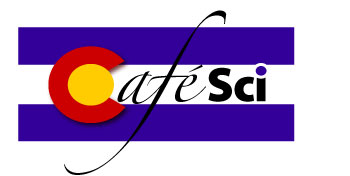This week, the Café will be meeting downstairs at the Wynkoop, in the Impulse Theater,
which puts on a hysterically funny improv show on weekends; check it out!
About the topic
Bio
The Hygiene Hypothesis
The past few decades have seen a huge increase in allergic diseases like eczema and asthma, and autoimmune diseases like multiple sclerosis, Crohn’s disease, ulcerative colitis, and Type 1 juvenile diabetes. But the incidence is not uniform around the world: the inflammatory bowel diseases and allergies are less common in poor countries. In the United States and Canada, the increase in these diseases is seen in rich, not poor, communities; in the north more than the south; and in urban more than rural communities. This does not on the face of it seem to make sense! Why should people who live a “cleaner” lifestyle be more susceptible to allergy and autoimmunity? The Hygiene Hypothesis, also called the Old Friends Hypothesis, was formulated to address this seeming paradox. It says that humans have always had a gut- and skin-full of microorganisms and worms. We came to terms with these organisms, which gradually evolved from parasites to harmless commensals. In fact, they now serve to train each person’s immune system not to overreact to harmless bugs. But when we started cleaning up our environment, we lost some of our Old Friends; our immune systems became unbalanced, and we now respond violently and damagingly to gut organisms, skin bacteria, pollens and even foods as if they were the most dangerous pathogens. What can we do about this?
If you feel you need an entire graduate course in Immunology (and who doesn't?) try J.J. Cohen's; click here.
Notable quote: "Eating dirt or moving to a farm are at best theoretical rather than practical clinical recommendations for the prevention of asthma." New England Journal of Medicine
Notable quote: "In a choice between autoimmune hepatitis or diabetes and asthma, most people would choose asthma." American Journal of Respiratory Cell and Molecular Biology
Bio
J . JOHN COHEN, MD,CM, PhD
Department of Immunology, MailStop B-184
University of Colorado Denver School of Medicine
Denver, CO 80262, USA
E-mail: john.cohen@ucdenver.edu
J.J. Cohen was born in Montreal and attended McGill University, obtaining his B.Sc. (Honors, Biochemistry), M.Sc. (Endocrinology), Ph.D. (Immunochemistry), and M.D., C.M. degrees. He did a residency at the Royal Victoria Hospital, followed by postdoctoral fellowships with Henry Claman at the University of Colorado Medical School in Denver, and Avrion Mitchison at Mill Hill in London. He returned to Colorado as Assistant Professor, and is now Professor of Immunology and Medicine. In 1987-8 he was visiting Professor at the Swiss Institute for Experimental Cancer Research in Lausanne. He was awarded a number of scholarships and prizes during his training, including the Clemens von Pirquet Award. The students at Colorado have given him the Excellence in Teaching Award every year since 1982 and he has 5 times been selected as Teacher of the Year. In addition to Dean's, Chancellor's, and President's teaching awards, he was in 1992 made a President's Teaching Scholar, the University's highest teaching recognition. He was the ARCS Foundation “Man of the Year” in 1990. In 2001 he was elected Fellow of the American Association for the Advancement of Science, and in 2002 he was given the Alpha Omega Alpha Glaser Award as an outstanding teacher of medicine nationally.
In 1989 he and the Public Relations office at the Health Sciences Center founded the “Mini Med School” for the general public, a concept now being developed in over 100 schools in America, Canada, and Europe. This fall the Mini Med School has its usual audience in Denver, and by satellite, at ten additional sites around the state of Colorado. For their implementation of this concept he and his PR collaborator, Catlin Carlon, shared the Colorado Healthcare Communicators Gold Leaf Award in 1997, 2001, and 2002. In 2007 the Université de Sherbkooke in Canada awarded him the degree of Doctor honoris causa. He has served on several NIH study sections and is a member of the American Dental Association's Council on Dental Therapeutics. He is a consultant to NASA, the Arthritis Foundation, the Milheim Foundation, and Alpha Omega Alpha, of which he is an honorary member. Dr. Cohen is in constant demand to teach and lecture on his research around the world, and has held many honorary lectureships. He is consulting editor of The McGraw Hill Encyclopedia of Science & Technology, for which he recently wrote a review of the Hygiene Hypothesis. His research group was the first to show that cells have an inherent genetic “suicide program” by which they can be eliminated from the body.
He founded the Denver Café Scientifique in November 2003 and is still, as far as he knows, the organizer, to the extent that anything at the Café can be said to be organized.
